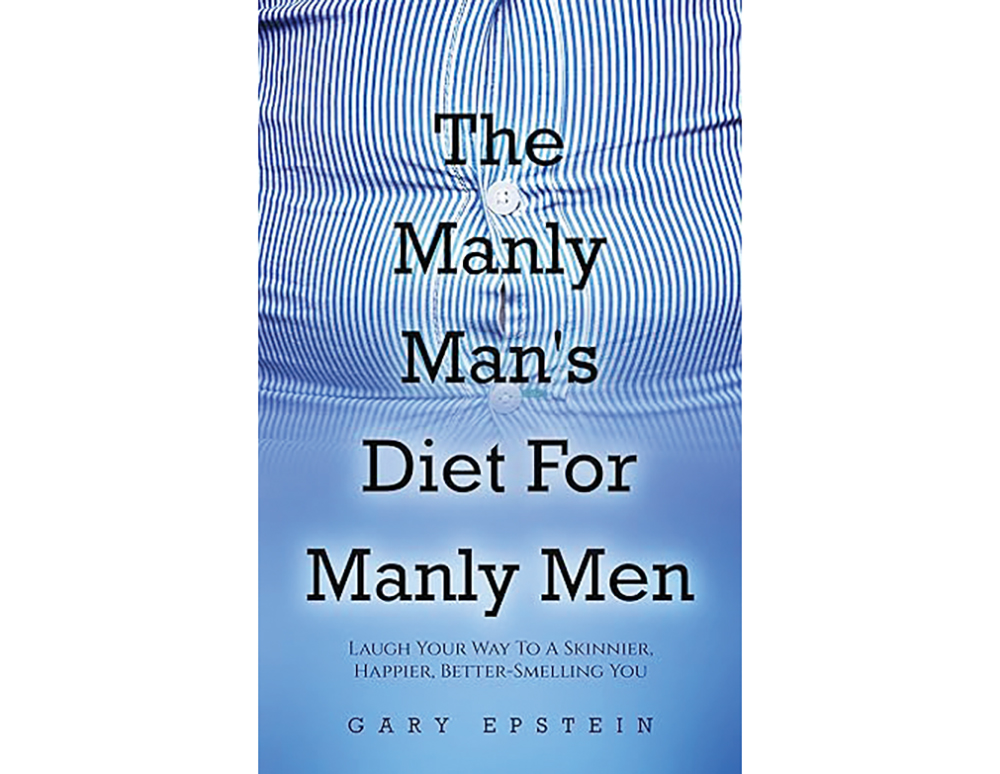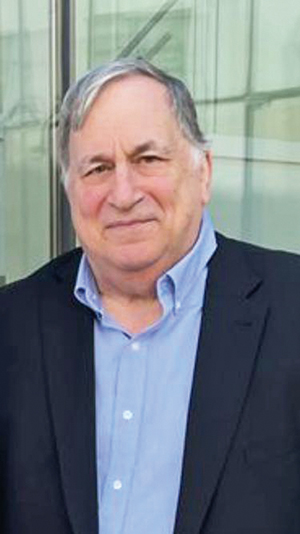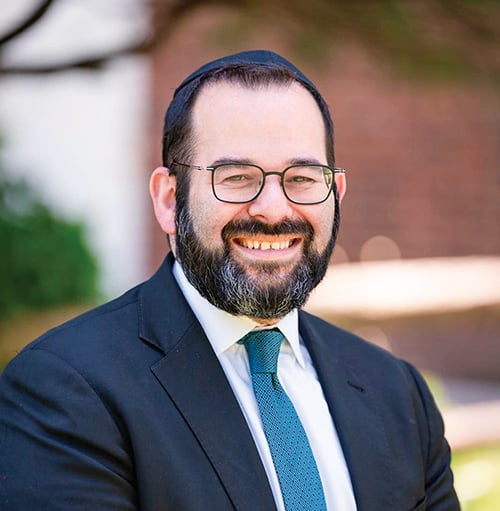
Highlighting: “The Manly Man’s Diet for Manly Men: Laugh Your Way To A Skinnier, Happier, Better-Smelling You,” by Gary Epstein. Independently Published. 2023. Paperback. 104 pages. ISBN-13: 979-8385873906.
Aside from the title, this is how you know that “The Manly Man’s Diet for Manly Men” is not meant for women. Right up front, on Page 2, Gary Epstein writes, “There are no feelings in this book that need to be shared.”
Before he imparts his practical, workable weight loss plan, Epstein affirms the manly mantra: men do not take advice. Men do not like to be nagged. Men will do what they want, when they want. In order to achieve the proper motivation, Epstein suggests, perhaps tongue-in-cheek, that a man should totally let himself go and eat whatever he wants until a forced encounter with a scale or mirror or both results in such self-loathing that he is convinced to change his evil ways.
The only way to get a manly man to lose weight is to make him decide to do that, and keep it simple.
“The Manly Man’s Diet for Manly Men” is a nudge in that direction, providing enough laughs to keep a guy reading until he’s ready to try Epstein’s plan, or at least consider it. You can lead a man to water (instead of say, beer, scotch or soda) but you can’t make him drink (at least not the required eight ounces at every meal and a minimum of 24 additional ounces between meals).
Epstein eschews what he calls scientific discussion and psychobabble. He boils down the essence of weight gain and loss to a few sentences. He explains how our bodies make a sugar-like substance to burn for energy but that process goes awry when we eat too much sugar, which then gets converted to fat. I have paraphrased here. You can read the original, more colorful version in the book. This is the solution: “If you withhold sugar and lots of carbs, your body has to burn the fat to make the sugar-like substance. That’s it.”
Easier said than done perhaps, but Epstein lays out a plan to do just that, with a shopping list, instructions and minimal food prep. He makes an excellent point about will power and the ability to change. He knows observant Jews who are still addicted to nicotine but refrain from smoking on Shabbat because it is prohibited. Think of sugar as another prohibited substance. “It is simply a matter of saying to yourself: I have made this decision. It is not open for debate. I am strong enough to maintain my position. I. Am. A. Man.” Purchase The Manly Man’s Diet for Manly Men at https://rb.gy/23c42p.
Epstein has followed the diet himself and lost weight successfully, he said. I wanted a reality check so I interviewed his wife Ahuva, conducted by email since she was recovering from laryngitis. “We have heard from a number of people who have done well on it (Gary’s plan),” she wrote. “Gary has been successful dieting when he decided to be successful about dieting. That is his rationale for the book — that no one else can ever convince you to do it. It only happens when you decide on your own. The diet works, but like most diets, only if you are observing it.”

Ahuva said she has followed diets on and off most of her life. She tries to eliminate sugar but unlike her husband, and most men, she likes to cook and prepares lots of vegetables. “Gary says that it is unnatural and dangerous to eat kale and pokes fun at my kale, spaghetti squash and cauliflower recipes,” she wrote. “He has sworn never to believe me again when I tell him that my cauliflower kugel recipe tastes just like potato kugel.”
Epstein did not have a professional editor for the book but Ahuva, a former second grade teacher, served as a sounding board and gave him her feedback. She wrote: “My opinions were mostly ‘you can’t say that,’ ‘that needs to go,’ and ‘are you out of your mind?’”
Epstein is neither a nutritionist nor a psychologist. He is an erudite writer with a wicked sense of humor. In a long and varied career, he has been an English professor, high powered attorney, and pioneer in making shidduchim for Israeli companies who want to connect with American companies. He is retired now and living in Israel. He spends his time doing whatever he wants to do, which could be writing blogs on topics of the day, volunteering or spending time with grandchildren. As Ahuva put it, “He is quite content to be alone, reading, writing, watching old movies.”
Epstein writes and circulates a newsletter for his family that combines news, a dvar Torah, commentary on the parsha, and whatever he wants to say that week. His pen name is Hessech Hadaas, loosely defined as an interrupted train of thought. Ahuva prints the newsletter before Shabbat and they “discuss and laugh over it” at Shabbat dinner.
He loves getting feedback about the newsletter from his kids and grandchildren. That was the beginning of “The Manly Man’s Diet for Manly Men.” It started as a way to amuse his grandchildren and blossomed into a book. Epstein said the grandchildren were “surprised” to see this side of him. Shocked may be a more accurate term.
Humor has been a constant thread in Epstein’s life. He first discovered the power of humor as an English professor at Iowa State University. He arrived there having changed his mind about careers. After graduating from college in 1969, he was accepted at Harvard Law School but decided instead to go to graduate school at New York University and teach literature.
At Iowa State, where he taught mostly freshman composition, he soon discovered that he couldn’t really teach anyone how to write, but could make some progress with students by being entertaining. “I was one of the more popular teachers on campus,” he said. “When you’re funny, whether you’re a good teacher or not, people give you high marks because they enjoy coming to your class. Before you can teach anything, you have to get them to listen to you. And if they’re laughing, they’re usually listening.”
After teaching for seven years, he realized that he didn’t want to be teaching freshman comp when he was in his sixties like some of his colleagues. So he retraced his steps, reapplied to Harvard Law School, and persuaded (it didn’t take much persuasion) Ahuva to move to Boston with their two kids and support him for three years.
After graduating in 1980, Epstein made an unusual choice to work for the Greenberg Traurig law firm in Miami. The firm, which now has more than 3,000 attorneys in 35 offices around the globe, was then a single Miami office with 40 attorneys. It was a coup for them to get a Harvard Law graduate. Epstein was persuaded for two reasons. Ahuva, who is from Ottawa, wanted to be somewhere warm. Greenberg convinced him that if he went to a firm in New York, he’d have to advance in lockstep with his class, but in Miami, considered a legal frontier, he could rise at his own pace.
Epstein told me several good stories about how the firm had to get used to his schedule as an Orthodox Jew, the only one at the firm although there were several Jews there. He worked with a partner in the firm, a Cuban Catholic, who decided to get a planner with Jewish holidays so he would know when Epstein could and couldn’t work. Epstein told him to look for the icon of candles and then he would know about Shabbos and Yom Tov and the days Epstein wouldn’t be available. That worked well until Chanukah.
The firm thrived and Epstein helped to build it into a multimillion dollar business. He eventually became the head of its global corporate and securities department, supervising 375 attorneys.
Then, in 2002, Epstein was in Israel during the Second Intifada and saw how Israel’s economy was in shambles. He was one of four guests at the King David Hotel. He had an idea to help.
In order to protect local firms, Israel had a law that foreign firms could not open a branch office in Israel. Epstein’s idea was to approach Israeli law firms and offer to introduce their Israeli clients who wanted to do business in the U.S. to American companies. He would arrange introductions to such companies as Apple, Raytheon or the Department of Defense, or any one of the firm’s tens of thousands of clients, and most of the actual work would be done in the U.S. The Israeli firms would continue to represent their clients in Israel and Greenberg would practice U.S. law — a win-win proposition.
That began many years of working in both Miami and Israel. Ten years later, the law was changed so foreign firms could open an office in Israel to practice foreign law. Epstein convinced the firm leadership to open the first full-service, licensed foreign international office in Israel. “There are now 16 lawyers and 32 people working in that office, many of whom made aliyah just because the office was there,” he said. “It started out as pure Zionism with limited expectations of economic upside. But we did well by doing good. We wound up helping Israel and making money. That’s one of the things I’m proudest of in my career.” Epstein left the office in good hands when he retired and the firm has continued to prosper.
Epstein worked both in Miami and Israel until retiring and moving to Israel three years ago. He and his wife do a lot of volunteer work now, with just about everyone in the country affected by the war in one way or another. And he loves to write. His blogs in the Times of Israel contain astute analysis, moral outrage, history lessons and of course, humor. Titles include “Jews for Haman,” “E Pluribus Yitro,” and “Remember the Philistines.” Perhaps his next book will be on how to retire without regret. Whatever the topic, I’m sure it will be funny. And serious at its core. Because once Epstein has us laughing, we’ll be listening.
Bracha Schwartz is special sections editor at The Jewish Link.












